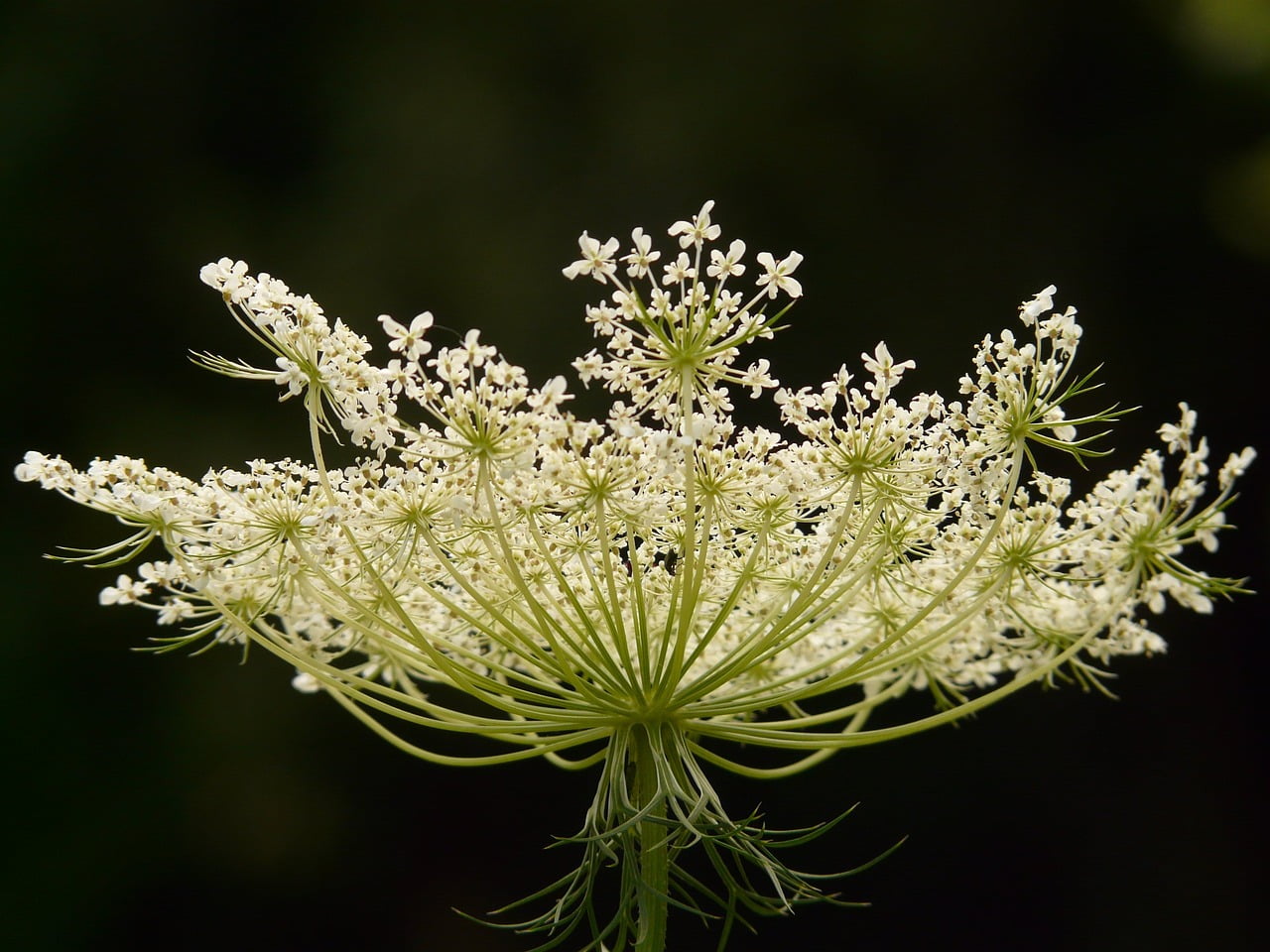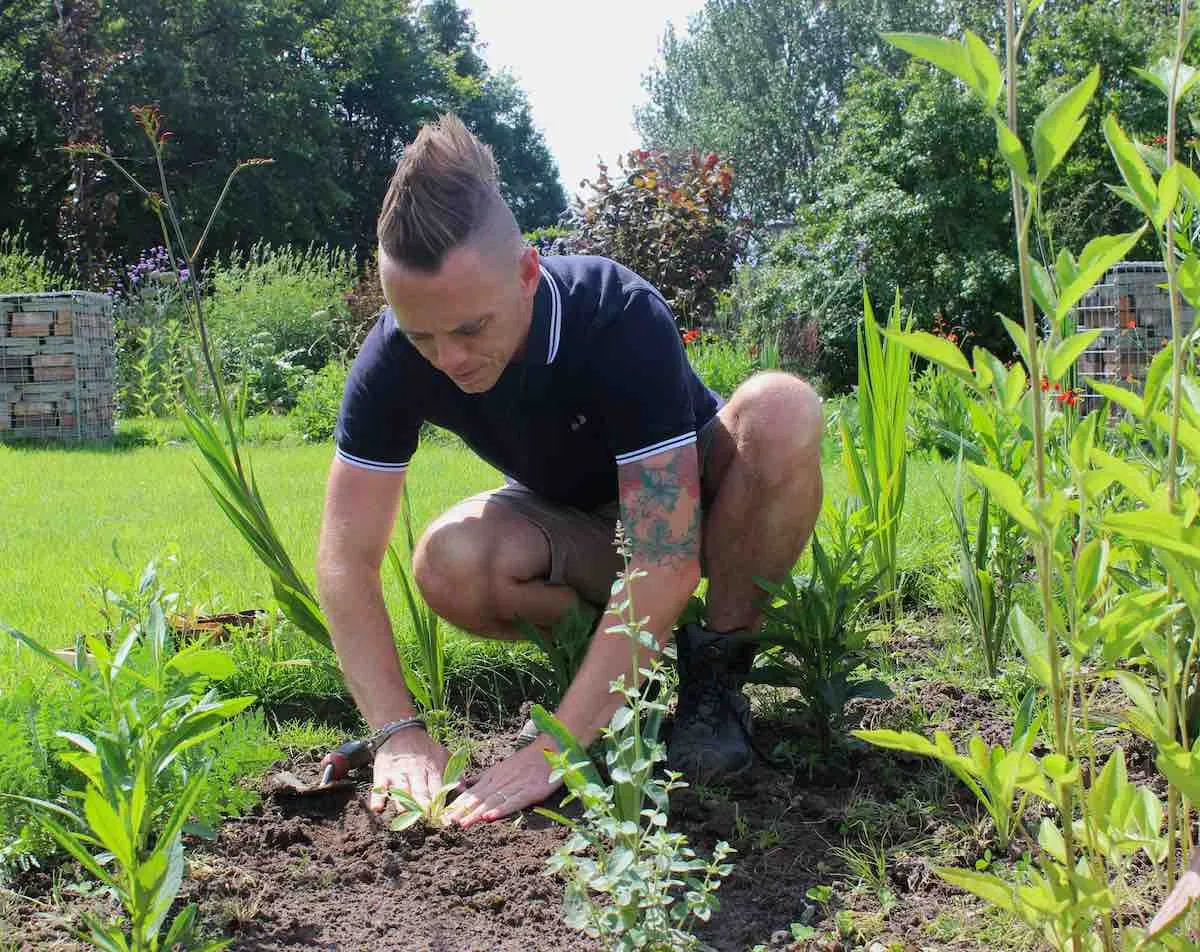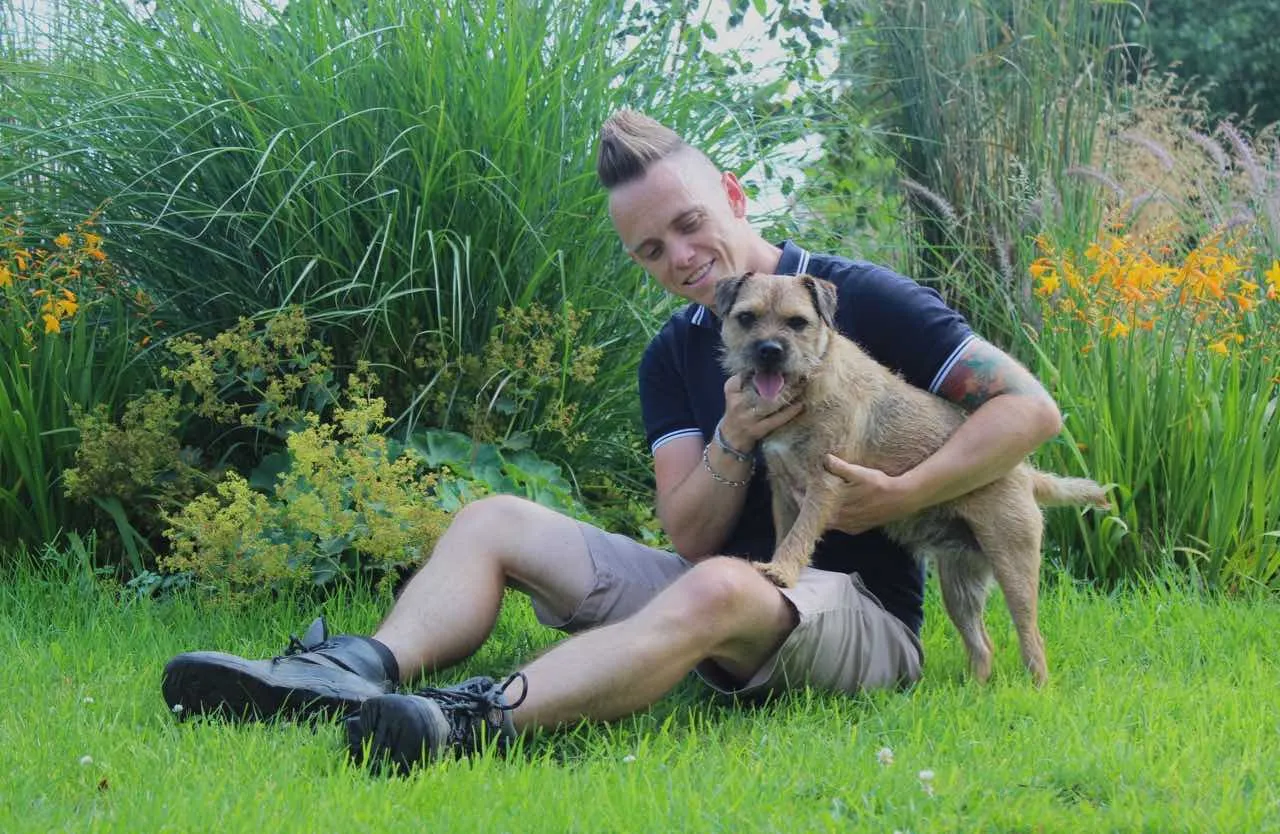Hi @sashas
Great question about wild carrots (Daucus carota) and biennial plants. Let me provide a whistle-stop tour of what they are and how to grow carrots from seed.
What are wild carrots?
Wild carrots are a close relative of the vegetable we grow for food in allotments and farmers' fields across the UK. However, these versions are a wildflower; some would even say weed, which can be found in verges, pathways and footpaths across the UK in the middle of summer.
They have a gorgeous umbellifer flower, which looks like an upside-down umbrella. Umbellifers like carrots and Yarrow are great for pollinating insects due to the height volume of tiny flowers.

Are carrots biennial?
Yes, they are. Biennial plants only live for two years. You can read more on biennial plants here or watch the video below.
In year one, the carrots will put on fluffy green foliage at the base. That is all that happens.
https://youtu.be/Z_QqwySxpTc
Then in year two in late spring, a main stem will emerge, which containers the flower. This flower opens from June onwards and gets pollinated by insects and bees. Then once pollinated it will set seeds and scatter them to repeat the process.
What conditions do wild carrots need?
Wild carrots like nutrient-poor soil and chalky conditions. They grow best on disturbed soil. As a biennial, they need one year to put on their basal foliage growth, and then in year two, they flower and set seed. They prefer well-drained, almost dry soil too. They are very undemanding hence their appearance in the wasteland or recently disturbed ground.
If growing them in containers, use seed compost which has low fertility or coir growing media. They will struggle in really fertile soil or high-nutrient compost.
For example, if you scatter seed in a wildflower meadow, you must first disturb the soil with a rake or hoe. They won't compete with grass or root through turf.
https://youtu.be/YDBXSsKXMGg
Best time of year to sow wild carrots?
The best time is autumn when they can be grown in containers or in the ground by seed sowing. This mimics their normal germination pattern. Remember the carrot sows its own seeds at the end of summer. These in the wild would germinate in autumn. Meaning year one starts the next spring and then year two the year after. It's a 2-year process.
https://youtu.be/DICGT44SMSs
If you want flowers this year buy some container-grown wild carrots for next year and then collect the seed to sow yourself afterwards.
I hope that helps.
Happy gardening!
Lee
Hi @sashas
Great question about wild carrots (Daucus carota) and biennial plants. Let me provide a whistle-stop tour of what they are and how to grow carrots from seed.
What are wild carrots?
Wild carrots are a close relative of the vegetable we grow for food in allotments and farmers' fields across the UK. However, these versions are a wildflower; some would even say weed, which can be found in verges, pathways and footpaths across the UK in the middle of summer.
They have a gorgeous umbellifer flower, which looks like an upside-down umbrella. Umbellifers like carrots and Yarrow are great for pollinating insects due to the height volume of tiny flowers.

Are carrots biennial?
Yes, they are. Biennial plants only live for two years. You can read more on biennial plants here or watch the video below.
In year one, the carrots will put on fluffy green foliage at the base. That is all that happens.
Then in year two in late spring, a main stem will emerge, which containers the flower. This flower opens from June onwards and gets pollinated by insects and bees. Then once pollinated it will set seeds and scatter them to repeat the process.
What conditions do wild carrots need?
Wild carrots like nutrient-poor soil and chalky conditions. They grow best on disturbed soil. As a biennial, they need one year to put on their basal foliage growth, and then in year two, they flower and set seed. They prefer well-drained, almost dry soil too. They are very undemanding hence their appearance in the wasteland or recently disturbed ground.
If growing them in containers, use seed compost which has low fertility or coir growing media. They will struggle in really fertile soil or high-nutrient compost.
For example, if you scatter seed in a wildflower meadow, you must first disturb the soil with a rake or hoe. They won't compete with grass or root through turf.
Best time of year to sow wild carrots?
The best time is autumn when they can be grown in containers or in the ground by seed sowing. This mimics their normal germination pattern. Remember the carrot sows its own seeds at the end of summer. These in the wild would germinate in autumn. Meaning year one starts the next spring and then year two the year after. It's a 2-year process.
If you want flowers this year buy some container-grown wild carrots for next year and then collect the seed to sow yourself afterwards.
I hope that helps.
Happy gardening!
Lee
 Lee Burkhill: Award Winning Designer & BBC 1's Garden Rescue Presenters Official Blog
Lee Burkhill: Award Winning Designer & BBC 1's Garden Rescue Presenters Official Blog



